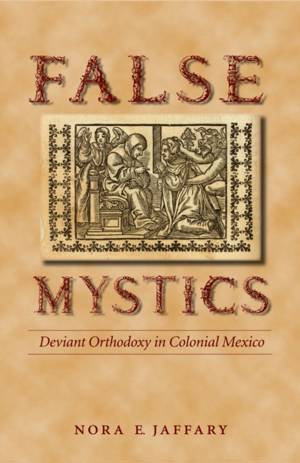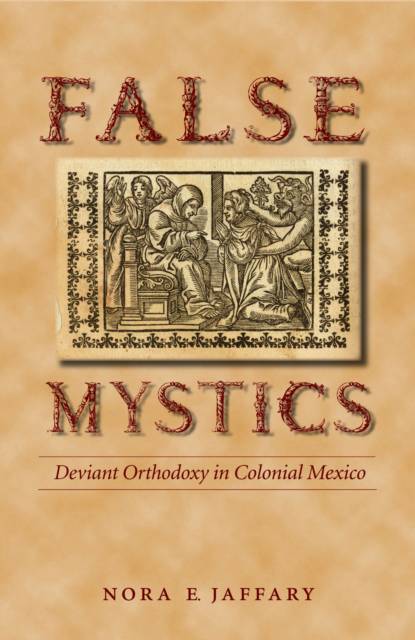
Bedankt voor het vertrouwen het afgelopen jaar! Om jou te bedanken bieden we GRATIS verzending (in België) aan op alles gedurende de hele maand januari.
- Afhalen na 1 uur in een winkel met voorraad
- In januari gratis thuislevering in België
- Ruim aanbod met 7 miljoen producten
Bedankt voor het vertrouwen het afgelopen jaar! Om jou te bedanken bieden we GRATIS verzending (in België) aan op alles gedurende de hele maand januari.
- Afhalen na 1 uur in een winkel met voorraad
- In januari gratis thuislevering in België
- Ruim aanbod met 7 miljoen producten
Zoeken
Omschrijving
False Mystics provides a history of popular religion, race, and gender in colonial Mexico focusing on questions of spiritual and social rebellion and conformity. Nora E. Jaffary examines more than one hundred trials of "false mystics" whom the Mexican Inquisition prosecuted in the seventeenth and eighteenth centuries. While the accused experienced many of the same phenomena as bona fide mystics--visions, sacred illness, and bouts of demonic possession--the Mexican tribunal condemned them nevertheless. False Mystics examines why the Catholic church viewed the accused as deviants and argues that this categorization was due in part to unconventional aspects of their spirituality and in part to contemporary social anxieties over class and race mixing, transgressions of appropriate gendered behavior, and fears of Indian and African influences on orthodox Catholicism. Jaffary examines the transformations this category of heresy underwent between Spain and the New World and explores the relationship between accusations of "false" mysticism and contemporary notions of demonic possession, sickness, and mental illness. Jaffary adopts the perspectives of visionaries to examine the influence of colonial artwork on their spiritual imaginations and to trace the reasons that their spirituality diverged from conventional expressions of piety. False Mystics illuminates the challenges that popular religion and individual spirituality posed to both the institutional church and the colonial social order.
Specificaties
Betrokkenen
- Auteur(s):
- Uitgeverij:
Inhoud
- Aantal bladzijden:
- 276
- Taal:
- Engels
- Reeks:
Eigenschappen
- Productcode (EAN):
- 9780803218406
- Verschijningsdatum:
- 1/05/2008
- Uitvoering:
- Paperback
- Formaat:
- Trade paperback (VS)
- Afmetingen:
- 152 mm x 229 mm
- Gewicht:
- 412 g

Alleen bij Standaard Boekhandel
+ 76 punten op je klantenkaart van Standaard Boekhandel
Beoordelingen
We publiceren alleen reviews die voldoen aan de voorwaarden voor reviews. Bekijk onze voorwaarden voor reviews.









